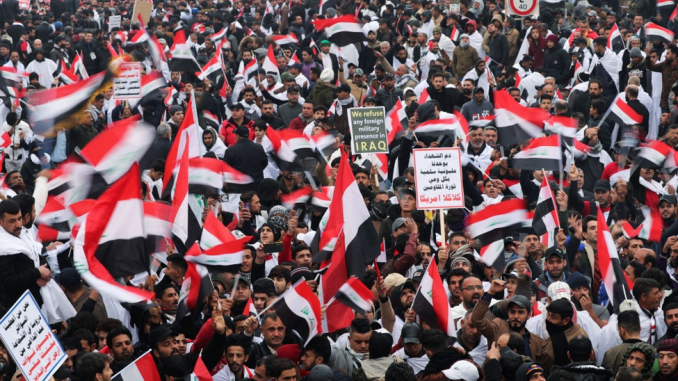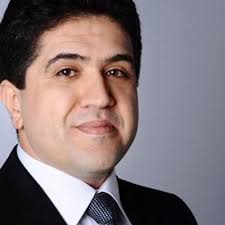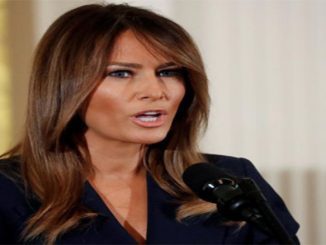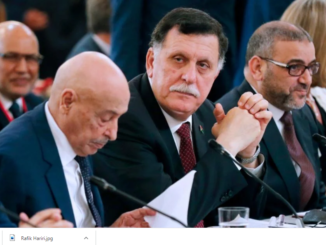
Tens of thousands of Iraqis marched Friday at the urging of popular Shiite cleric Moqtada al-Sadr, decrying U.S. influence in the country and demanding that Washington withdraw its troops.
Around Baghdad’s Jadriyah Square, the streets were a sea of black, white and red, as protesters clutched Iraqi flags and wore shrouds around their shoulders to evoke the country’s dead. Iraq’s government is under growing pressure to expel foreign troops after a U.S. drone strike killed a renowned Iranian general on Iraqi soil, inflaming regional tensions and leaving Baghdad’s politicians fuming.
At the march on Friday, loudspeakers denounced American troops as occupiers. Posters depicted President Trump hanging from a noose. The anthems of Sadr’s years-long militancy against U.S. forces also blared.
But the march itself was both disciplined and short, a set piece that made its point vociferously but dispelled fears of violent confrontation. Despite supporting Friday’s so-called “million-man march,” the Iranian-backed militias that have clashed with U.S. troops here had no obvious presence, and the tone of the day was strictly nationalist.
Americans came to our country talking of freedom and democracy,” Qayser al-Saad, 23, from Baghdad’s Sadr City, said as he clutched at his sleeves on a bitterly cold day. “Today we’re asking them to leave so we can have just that. It won’t happen in a homeland occupied by foreigners.”
After a period of relative stability, Iraq has been roiled by unrest since the fall. Anti-government protesters have repeatedly clashed with security forces, and more than 500 people have been killed, most of them young and unarmed men. The unrest has toppled a government and won mild electoral reform. But as protesters ramp up pressure for meaningful change, riot police have fired bullets into crowds and shot tear gas canisters heavy enough to smash skulls.
The protesters have also demanded an end to foreign influence over Iraq’s politics, decrying U.S. and Iranian influence in equal measure as they watch brinkmanship between the two inflame proxy battles and risk further bloodshed on Iraqi soil.
“We don’t want any of them. We don’t,” said Abbas Ali, a 31-year-old grocer, in Baghdad’s central Tahrir Square on Thursday night. “It’s not just about foreign troops. America built the system we’re living in, and it’s left us with no future. Iran has treated this country like its backyard. We want all of them out.”
In a weekly sermon, Iraq’s leading cleric, Grand Ayatollah Ali Sistani, urged lawmakers to implement “real reforms that the people have long demanded,” stressing that delays would only deepen the instability.
Throwing his weight behind Friday’s march, Sistani, whose statement was read aloud by a representative in the shrine city of Karbala, said that Iraqi citizens have “complete freedom” to peacefully demonstrate against anything that might undermine the country’s sovereignty.



